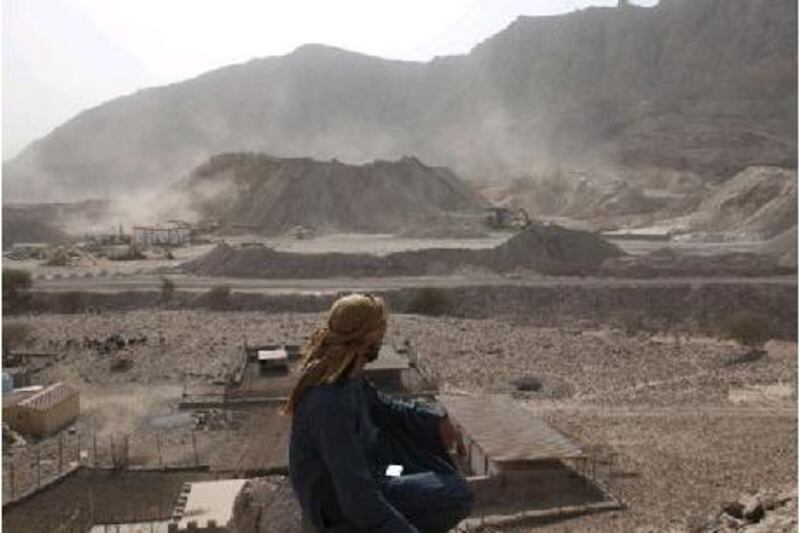FUJAIRAH // "We can't breathe," said Ahmed al Feel. "We can't go outside."
The 21-year-old university student and his family are at the sharp end of the UAE's air pollution problem, which, according to scientists' estimations, claims about 600 lives each year. Their mountain village of Tawaian is about two kilometres from a road with 12 quarries on it, and they say the dust from the quarries' giant crushers is unbearable.
As the quarries have expanded, Mr al Feel's family have moved twice in four years. Now they, like other residents, are demanding that either the quarries be closed or they be given new housing. The demands follow the one-week closure of a quarry last month for failing to comply with environmental regulations.
"We hope they close it forever," said Mr al Feel. But residents said that the quarry's closure had no noticeable effect on air pollution - there are quarries within 2km on all sides of the village, and more than 20 in the immediate area.
People are upset by the loss of land, but health is the overriding concern. Many young children now have asthma, including Mr al Feel's nine-month-old nephew. "They should stop the crushers or if they them want to stay they should make houses for us far away," said Mr al Feel. "We want a safe place. It is hard for our children." Aisha Obaid, 36, a mother of 12 children between the ages of six months to 18 years, said her older children had no respiratory problems when they were small but in the past five years, it has become impossible for her younger children to play outside.
"Asthma has come here," said Ms Obaid. "Look at my children. They all have asthma because of the crushers, and it's much worse for the young children. All the people in this town have complained. "I saw on TV that they said they closed a quarry but we are not sure of this." Ms Obaid said life had become such a nightmare she would happily leave her mountain home. "I would move for my children," she said. "If they will give us a home and good weather we would go."
It is not just the young who are affected. "They make us all sick, they make me tired and it's been this way for too many years," said Saeed Hassan, a man in his 70s. "There's a lot of dust here. Too many quarries opened two years ago, just one kilometre from here." Mr al Feel's brother-in-law, who did not want to be named, has had asthma for three years. "Each year, two or three new quarries come," he said. "Of 27 quarries, I have heard of just one that's closed."
Traffic from the quarries is another danger on the narrow and unlit mountain roads. "People from here only work in administration [at the quarries]," said Mohammed Rashed, 49. "What benefit do we get from them?" Strong environmental regulations introduced in 2008 have seen a marked improved in air quality, said quarry managers. "Six years ago it was very bad, but now it is OK because of the environmental requirements," said Mathu Nirajan, the general manager for three quarries in the Western Bainoonah group.
"The government come by any time, one or two times a week and make surprise visits," he said. "I see a lot of dust from other quarries but they fining these people. The environment people will come and if it is not OK they will stop the crushers for a week or a month. This is the law of this country and they have to abide by the law."
His company invested Dh1milion in environmental control that included a Turkish spray system that reduced dust and air pollution by 95 per cent. Saad Efat, the general manager of Bin Laha Crusher, said crushers were now working with the government to reduce pollution. His quarry has invested about Dh2.5m on environmental controls since 2005. "Everyone is following the regulations or they will be shut down," said Mr Efat.
"The municipality and ministry are here all the time and most of the crushers in the area are following regulations. "There are a lot of inspectors. They come two or three times every day. It's good for everybody."





